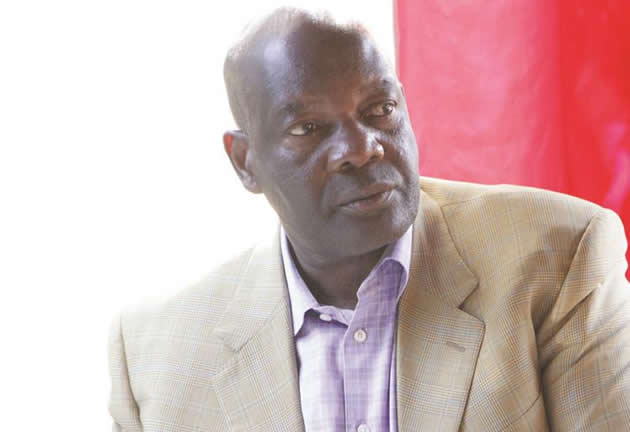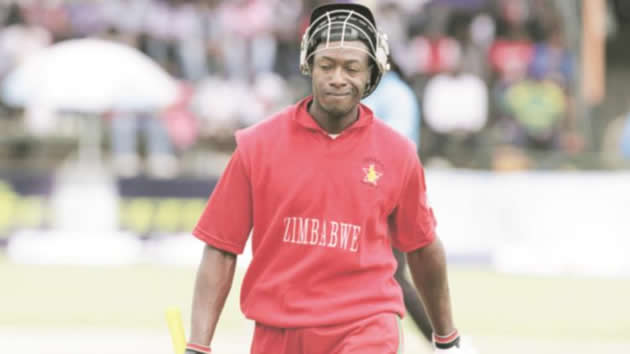Stoking the fire of local languages’ literature

Ignatius T. Mabasa Shelling The Nuts
ALMOST a year after making a call for Shona short stories to be published in an anthology by Bhabhu Books, the book is now going to print. As a writer and small projects publisher, I was telling a writer friend that Zimbabwe risks contributing to the death of her literature by neglecting to nurture and
support a new and successor generation of writers, specifically Shona and Ndebele writers.
The new Shona short story anthology titled Makore asina mvura has been a surprise.
It has revealed to me that wandering out there in the vast desert of creative writing are young men and women who can easily be inducted in the Shona writers’ hall of fame next to T. K. Tsodzo, Solomon Mutswairo, Sharai Mukonoweshuro, Charles Mungoshi, Patrick Chakaipa, Mordekai Hamutyinei, Aaron Chiunduramoyo, Mafumhe Mutasa and others.
It also dawned on me that a lot of these talented young people will probably get frustrated by the lack of opportunities, mentoring, support and respect, such that they will give up writing and turn to other pursuits that do not create a legacy or contribute to nation-building.
Our arts and culture policies will need to invest to in people, in developing them and giving them the tools and platforms to become the next generation of influencers.
I strongly believe in the words of the late evangelist, Miles Munroe who said, “True leaders don’t invest in buildings. Jesus never built a building. They invest in people. Why? Because success without a successor is failure. So your legacy should not be in buildings, programs, or projects; your legacy must be in people.”
We are expecting to have literature being taught from primary school and have a nation of readers, but we have no structures or support for the many writers that are dying to tell their stories, to take over from the current writers.
This is when I feel that one of our many universities should at least offer short courses in creative writing or offer some writer-in-residence programmes as part of building and stocking the libraries of the future and contributing to national development.
We should not forget what Washington Irving said that, “The idol of today pushes the hero of yesterday out of our recollection; and will, in turn, be supplanted by his successor of tomorrow.” Today’s influencers are not tomorrow’s influencers, and change favours a prepared mind.
A few years ago, while I was crawling in the literary wilderness and being teased by mirages and vultures, I spoke on behalf of the budding writers of my time through a poem titled Tipeiwo Dariro. This poem eventually was included in a poetry anthology that was published by College Press featuring new poets. Finally, through a talented Shona editor called Chirikure Chirikure who had scouted for talent, College Press granted several aspiring writers a platform. In that anthology are poets who have gone on to become great writers like Memory Chirere, Chiedza Msengezi, Emmanuel Sigauke among others.
Tipeiwo Dariro is a plea to publishers, to Government, to the people of Zimbabwe to create a space, an enabling environment for aspiring writers to be given a chance and a platform to showcase their talent, to speak their mind and shock the world with their creativity and imagination.
Back then, I had uncontainable enthusiasm, I was “mad” and frothing at the mouth for poetry, for opportunities. I wrote poems on pieces of soap while taking a shower.
I gatecrashed into a Zimbabwe Writers Union meeting at the Ambassador Hotel, read two poems and was hugged by T.K. Tsodzo and congratulated by Aaron Chiunduramoyo.
That evening at the Ambassador Hotel was great validation for me. I was invited to the University of Zimbabwe by Solomon Mutswairo before I never thought that one day I was going to study there. I was honoured to be invited to an institution of academic excellence by a leading writer and academic even before I got published.
I became published because of the Ambassador Hotel poetry reading — I was published (and it was my first time to have my name published in a national newspaper) by Davison Maruziva who as Deputy Editor of The Herald had a remarkable column that was published on Mondays that was dedicated to the literary arts.
Professor Mutswairo, a few months later, published my poems in a University of Zimbabwe literary magazine.
That was many years ago, but I still remember all that because I have been advocating for the growth and development of our literature — especially by giving new and young voices a chance to be heard, to bring in new dimensions and in the process guarantee the continued celebration and promotion of our local languages literature.
I am pleased and proud at the same time to announce that the collection of Shona short stories titled Makore asina mvura will be out before Christmas.
The goal of the anthology was to give young writers who have been in the literary desert an opportunity to tell stories of their thirst and the search for water. I wanted to give the young, uncelebrated and unknown writers a voice, and where possible a few writing tips, but alas, in the process of helping I was helped and taught a lot.
The anthology titled Makore asina mvura is not talking about City of Harare’s perennial water problems, but is a telling of 15 diverse stories by 15 mostly unknown Shona language authors.
The contributors are a mixed bag age-wise and profession-wise. They are not predictable and they almost defy being categorised. The voices are diverse and sincere, hilarious and sobering. When I read the stories, I felt like I was at a festival. A festival of stories. David Binder commenting on festivals once said, “Festivals promote diversity, they bring neighbours into dialogue, they increase creativity, they offer opportunities for civic pride, they improve our general psychological well-being. In short, they make cities better places to live.”
Reading and editing the stories with Tinashe Muchuri as my assistant enabled me to have a rare dialogue with the authors.
Makore in Shona can mean years or clouds, and mvura can mean water or rain. The anthology title Makore asina mvura can mean so many things literally and metaphorically.
It should not be limited to a few prescribed views, and that is what one will find in the amazing stories in the anthology. I had my WhatsApp status saying, “Ndakatiza makore ndichiti imvura.” Translating this into English makes it very clumsy, but it means something like, “The dark clouds made me seek refuge, yet they gave no rain.”
This was a statement I put up trying to challenge the writers not to treat the anthology title as something set. I wanted them to see the many possibilities of the drought motif.
I wanted them to think outside the box, or even forget about the box. I wanted them to have artistic freedom. So, the statement “Ndakatiza makore ndichiti imvura,” alludes to how appearances can be deceiving.
What you may see may lead you to make far reaching decisions, yet like in the folktale of Owl and the other birds, you will discover that what you thought were horns are just tufts of feathers.
One of the new writers featured in the anthology, Chenjerai Mazambani responded to my WhatsApp status by saying, “When you sought refuge from the rainless clouds, I took my wet laundry back into the house and drove the cattle into the kraal thinking that a mother of all storms had come.”
Bhabhu Books specialises in publishing Shona books and promoting a reading culture.
Since inception some four years ago, I have been receiving countless number of manuscripts and inquiries from Shona writers wanting to get published.
While I am passionate about the development, growth and promotion of Shona books, the reality on the ground is that I am unable to assist all the writers who approach me. Also, the dynamics in the book industry are making it difficult to invest in sustainable book publishing.
Yet, I feel duty bound to make sure the Shona language is preserved, promoted and celebrated, hence this anthology.









Comments